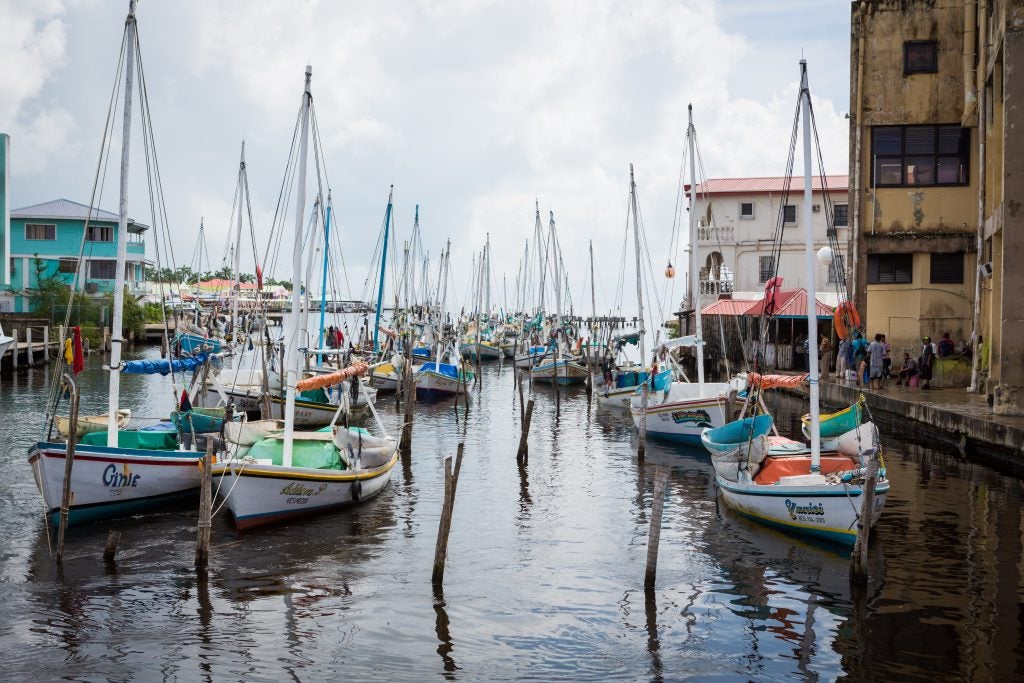Over the past week, representatives from organizations and countries from around the world have come together for critical discussions about protecting and enhancing biodiversity in the face of climate change at the IUCN World Conservation Congress in Marseille, France. For the first time at the WCC, restoring ocean health was one of the central discussion themes, as a “marine journey.”
EDFish
Selected tag(s): managed access
IUCN WCC | Sustainable fisheries & biodiversity conservation — working together in the face of climate change
What do Cuban and Belizean fishers have in common? More than meets the eye.
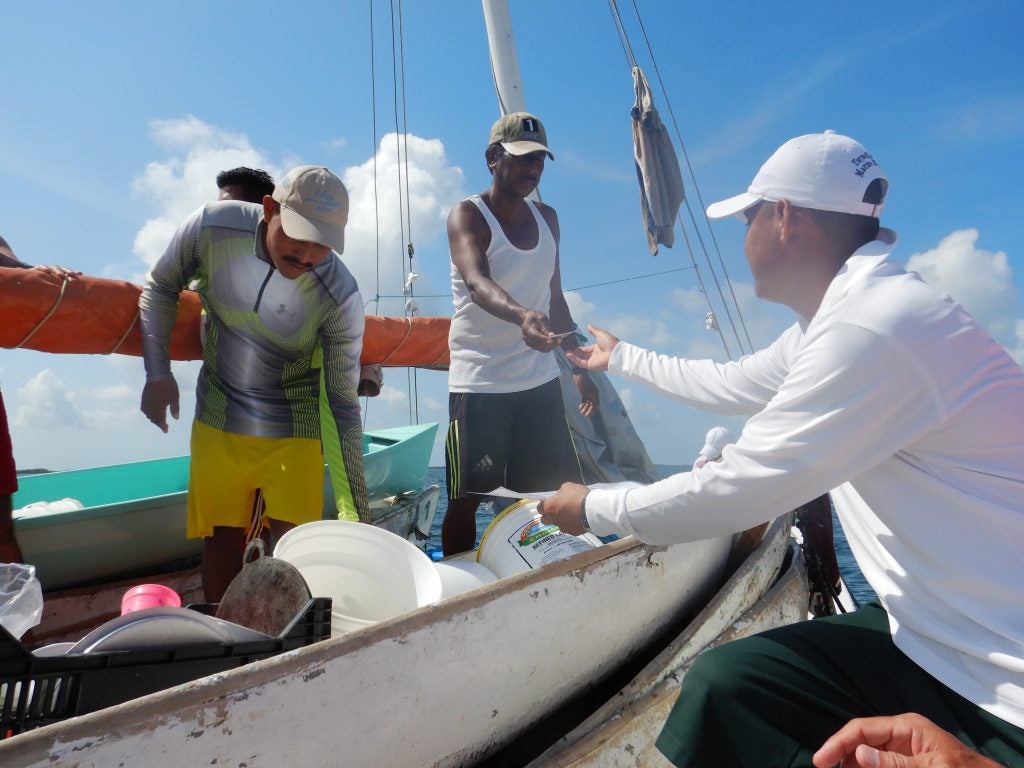 Cuba and Belize are connected by more than ocean currents. They share critical ecosystems like mangroves and coral reefs, and both countries have made major strides in fisheries management and coral reef conservation and are currently working to renew and strengthen their fisheries laws and policies. They also share challenges facing their fisheries—including managing complex fisheries that catch dozens of species all together—rather than targeting just one or two.
Cuba and Belize are connected by more than ocean currents. They share critical ecosystems like mangroves and coral reefs, and both countries have made major strides in fisheries management and coral reef conservation and are currently working to renew and strengthen their fisheries laws and policies. They also share challenges facing their fisheries—including managing complex fisheries that catch dozens of species all together—rather than targeting just one or two.
I was excited to join partners from both countries at a recent intensive four day Fisheries Exchange where they learned from each other and discussed new ways to collaborate on solutions to shared challenges, including different management strategies for the ecosystem overall and for important species like lobster, conch, and many species of finfish.
The Exchange included learning both in the classroom, and on the water—with the goal of showcasing how diverse partnerships working together improves science and compliance, involves and educates more stakeholders, creates opportunities for community development and leads to better managed fisheries and protected areas that benefit users for the long term.
We know from our work with fishing communities around the world that often the best way to solve shared challenges is to connect groups of likeminded fisheries stakeholders to share experiences and solutions. Read More
Bold commitments to sustainable fisheries at the United Nations will help Belize achieve sustainable oceans goals
The government of Belize has just made major voluntary commitments at the United Nations Oceans Conference that, once implemented, will secure Belize’s fisheries as an engine for sustainable development.
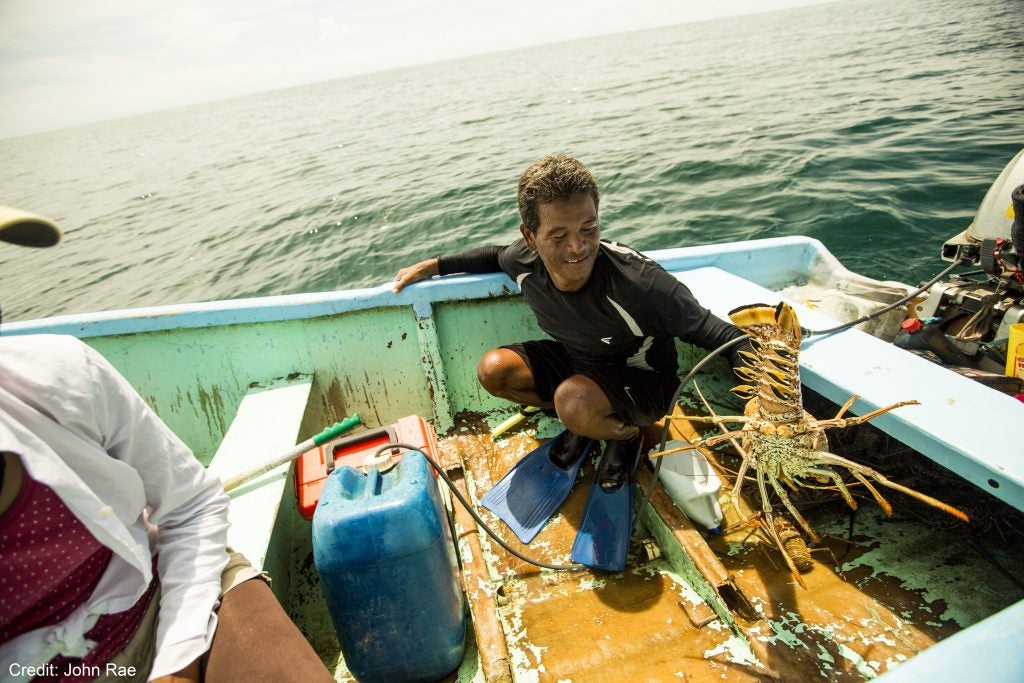 Healthy oceans and sustainable fisheries are crucial for poverty alleviation, food security and generating economic growth in low and middle income countries. This goal is reinforced by the United Nations Sustainable Development Goals which declare a target to “conserve and sustainably use the oceans, seas and marine resources for sustainable development.” The health and vibrancy of Belize’s coastal communities, where 15,000 people depend on fisheries for their livelihoods, depend on this target becoming a reality.
Healthy oceans and sustainable fisheries are crucial for poverty alleviation, food security and generating economic growth in low and middle income countries. This goal is reinforced by the United Nations Sustainable Development Goals which declare a target to “conserve and sustainably use the oceans, seas and marine resources for sustainable development.” The health and vibrancy of Belize’s coastal communities, where 15,000 people depend on fisheries for their livelihoods, depend on this target becoming a reality.
Last week, fisheries ministers, fishermen, community leaders and the conservation community from around the world gathered at the United Nations Oceans Conference to share experiences and strategies for achieving this vision, and declare voluntary commitments for good stewardship of the oceans.
The Government of Belize, representatives of Belize’s fishing community, Environmental Defense Fund, Wildlife Conservation Society, Toledo Institute for Development and Environment and The Nature Conservancy presented Belize’s major achievements in sustainable fisheries at the conference. At the gathering of leaders and experts in fisheries management from around the world, Belize’s Minister of Agriculture, Fisheries, Forestry, the Environment, Sustainable Development & Climate Change, Minister Omar Figueroa, highlighted the major step Belize took in partnership with Belize’s fishing and conservation community to end open access fisheries, and implement the world’s first national system of multispecies fishing rights for a small-scale developing world fishery, called managed access. In some fishing areas, this system is already yielding benefits as fishermen are reporting higher catch, and illegal fishing has dropped 60%. Read More
Community-based fishery management delivers individual and collective benefits in Belize
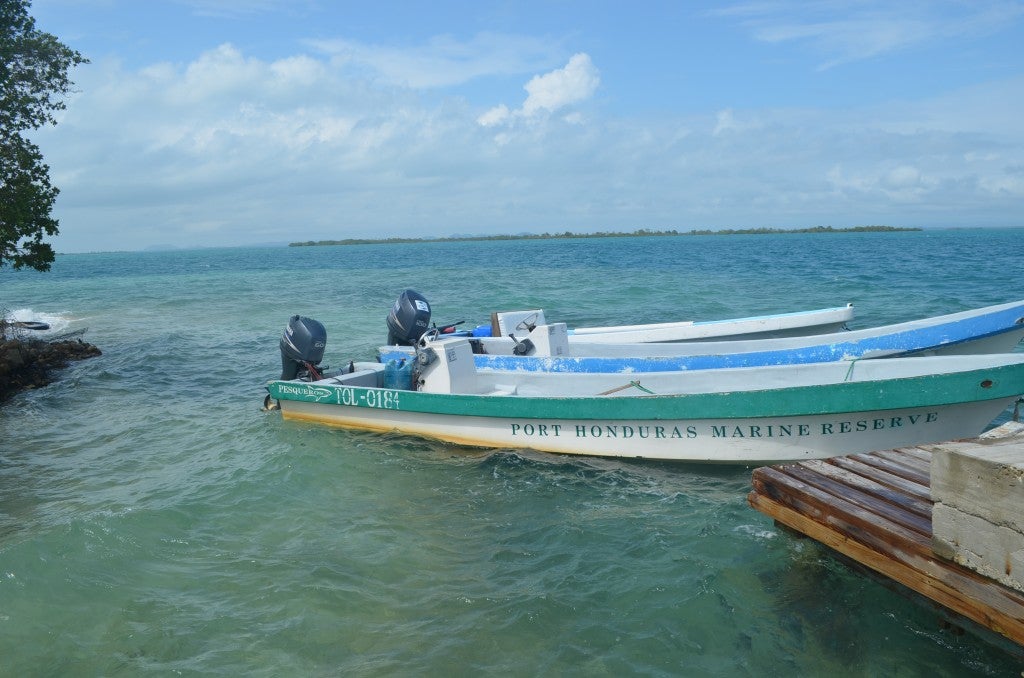 Recently, I traveled to Belize to see how TURF-reserves (territorial use rights for fishing co-located with no-take zones) are performing and learn about plans to expand them nationwide. The Mesoamerican Reef, the largest in the Atlantic Ocean, spans the Belizean coastline and is rich in biodiversity and a crucial source of income for thousands of fishers. Coastal fisheries, however, are at risk due to overfishing, and other pressures such as coastal development and climate change.
Recently, I traveled to Belize to see how TURF-reserves (territorial use rights for fishing co-located with no-take zones) are performing and learn about plans to expand them nationwide. The Mesoamerican Reef, the largest in the Atlantic Ocean, spans the Belizean coastline and is rich in biodiversity and a crucial source of income for thousands of fishers. Coastal fisheries, however, are at risk due to overfishing, and other pressures such as coastal development and climate change.
In Belize, fishers have seen a decline in their catch, and the Belize Fisheries Department is using TURF-reserves to provide fishers the right incentives to become better stewards of their resources. As fishers take better care of their fishing area they will realize benefits and secure them for future generations. This approach to fisheries management is known as “Managed Access.” In 2008 the Belize Fisheries Department began working with EDF, Wildlife Conservation Society, the Toledo Institute for Development and Environment (TIDE), and other Belizean institutions to deploy two Managed Access pilot projects.
Motivated by the success of the projects, the Belizean government is committed to expanding Managed Access to nearly half its fishing grounds, setting the country on a course to comprehensively rebuild and conserve its fisheries and precious biodiversity. Read More
How a growing partnership is reducing overfishing in Belize and beyond
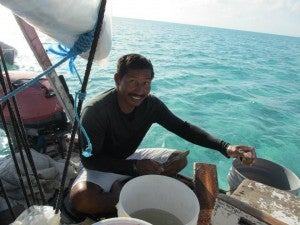
Gumercindo Cano, a Managed Access fisherman, takes the meat out of a conch shell
Photo credit: Heather Paffe
Fishing in the developing tropics looks very different from fishing in the United States. It’s easy to forget that millions of people around the world rely on wild fish for their daily protein and survival, rather than being able to purchase it from a grocery store. This is the case in the countries where EDF will work in partnership with Rare and University of California Santa Barbara (UCSB) on our ‘Fish Forever’ project. Fish Forever will focus on work with communities in the developing tropics to reduce overfishing and implement new guidelines that will allow fisheries to recover and more consistently provide the nutrition that so many depend upon. Part of that work will establish territorial user rights in fisheries (TURFs – called Managed Access in Belize), coupled with no-take reserves (replenishment zones/Marine Protected Areas) to advance sustainable fisheries, empower fishermen and bring those solutions to scale.
I recently returned from a governance committee trip to Belize with our partners, Brett Jenks, President of Rare, and Steve Gaines, Dean of UCSB’s Bren School of Environmental Science and Management and principal investigator for the Sustainable Fisheries Group. This trip was a vital way to connect with the community and government on the ground in Belize and understand the skills that each member of the partnership brings to the table. Read More










